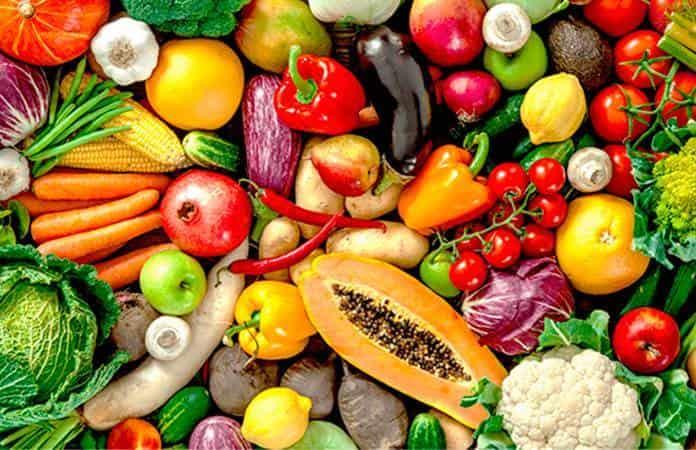Advertisements
Exploring the world of vegetarianism is like embarking on a journey of surprising and transformative discoveries. This increasingly popular eating practice is not just about choosing a simple dish, but involves a series of health benefits 🌱, challenges to overcome and crucial information for those who want to adopt a healthier lifestyle.
In this space, we will debunk the myths and truths about vegetarianism, offering a comprehensive overview of its advantages, such as reducing the risk of chronic diseases and improving overall well-being. In addition, we will address the common obstacles that many encounter when adopting this diet, such as the need to balance essential nutrients and changes in eating routine.
Advertisements
With valuable insights and practical tips, this guide is essential for anyone looking to understand the fundamentals of vegetarianism and make more informed food choices. We will also explore the importance of a balanced diet and how you can enjoy a tasty and nutritious diet without compromising your health and well-being.
Get ready for an enriching read that promises to change your perspective on vegetarianism and inspire a healthier and more sustainable life! 🌿✨
Advertisements

The Benefits of Vegetarianism: Why Choosing This Diet Might Be a Good Idea?
Vegetarianism has been gaining popularity in recent years, and for good reason. The benefits associated with this dietary choice go far beyond the plate. By choosing a vegetarian diet, you are investing in your health in several ways.
For starters, a plant-rich diet can help reduce the risk of chronic diseases like heart disease and type 2 diabetes. This is due in part to reduced intake of saturated fats, found primarily in meats, and increased intake of fiber and antioxidants, which are abundant in fruits, vegetables, and whole grains.
Furthermore, studies indicate that vegetarians tend to have lower cholesterol and blood pressure levels, which are important factors for cardiovascular health. Another interesting point is the positive impact on weight control, since plant-based foods tend to be less caloric and more satiating.
But the benefits aren’t just physical. Many people report a feeling of well-being and lightness after adopting vegetarianism. This may be linked to both nutritional aspects and the fact that they align themselves with ethical and environmental values, which can bring satisfaction and peace of mind 🌱.
Challenges of Vegetarianism: How to Overcome Common Difficulties
While the benefits are tempting, transitioning to vegetarianism can present some challenges. One of the most common is ensuring you get enough of all the nutrients you need for a balanced diet.
Recommended Articles
Protein, iron, calcium, vitamin B12 and omega-3 are nutrients that require special attention. Without proper planning, there may be a risk of nutritional deficiencies. However, with some adaptations, it is possible to meet these needs.
Protein and Plant Sources
Concerns about protein intake are common among those considering vegetarianism. However, there are several plant-based sources of protein that can be incorporated into your diet:
- Legumes: beans, lentils, chickpeas.
- Tofu and tempeh.
- Quinoa and amaranth.
- Seeds and nuts, such as chia, flaxseed and almonds.
Combining different plant sources throughout the day can help ensure you get the full essential amino acid profile.
Important Information for a Balanced Vegetarian Diet
Adopting a vegetarian diet requires knowledge and attention, especially to ensure that your diet is balanced and complete. Here is some essential information to help you on this journey.
Iron and Absorption
Although iron from plant foods (non-heme iron) is not as easily absorbed as iron from animal sources (heme), some strategies can improve absorption:
- Consume foods rich in vitamin C along with sources of iron, such as adding lemon to spinach salad.
- Avoid drinking tea or coffee during meals, as they can interfere with iron absorption.
Vitamin B12 and Supplementation
Vitamin B12 is a critical nutrient that is not naturally found in plant foods. Therefore, supplementation or consumption of fortified foods is essential for vegetarians.
Options include fortified plant-based milks, cereals, and B12 supplements. B12 deficiency can lead to significant health problems, such as anemia and neurological damage, so it's important to monitor your levels regularly.
Exploring the Different Forms of Vegetarianism: Which One Is Right for You?
Vegetarianism isn’t a one-size-fits-all approach; in fact, there are several ways to follow a vegetarian diet. Understanding these variations can help you find the one that best fits your lifestyle and nutritional needs.
Ovolactovegetarianism
Lacto-ovo vegetarians include eggs and dairy in their diets, in addition to plant-based foods. This approach can make the transition easier by providing an additional source of protein and other nutrients.
Strict Vegetarianism
Strict vegetarians do not consume any animal products, including dairy and eggs. This diet requires careful planning to ensure adequate intake of essential nutrients, but it is completely doable with care and knowledge.
Flexitarianism
Flexitarianism is a more flexible approach, where the basis of the diet is vegetarian but allows for the occasional consumption of meat or fish. This option may be ideal for those who want to reduce their meat consumption but are not ready to eliminate it completely.
Exploring these options can help you figure out which form of vegetarianism best aligns with your personal needs and goals. There’s no one way to be vegetarian, and the most important thing is to find a balance that works for you and your health 💚.
Conclusion
In short, vegetarianism can be a powerful choice to promote better health and a positive impact on the environment 🌍. By adopting this diet, you can enjoy several benefits, such as a reduced risk of heart disease, type 2 diabetes, and certain types of cancer. In addition, vegetarianism contributes to the preservation of the planet by reducing your carbon footprint and the use of natural resources 🌱.
However, it is crucial to be aware of the challenges that may arise, such as the need for careful planning to ensure adequate intake of essential nutrients, including protein, iron, calcium and vitamin B12. Fortunately, with proper guidance and nutrition education, it is possible to overcome these barriers and maintain a balanced and nutritious diet.
Finally, information is a powerful ally on this journey. Researching and understanding the nuances of vegetarianism can make the transition easier and increase your chances of success. So, if you are considering this change, remember that knowledge is power. 🌟 Don't hesitate to consult nutritionists and look for reliable sources to ensure that your diet is complete and satisfying.
Going vegetarian is more than just a dietary choice; it’s a commitment to a healthier, more sustainable lifestyle. With determination and information, you can transform your health and the world around you.




